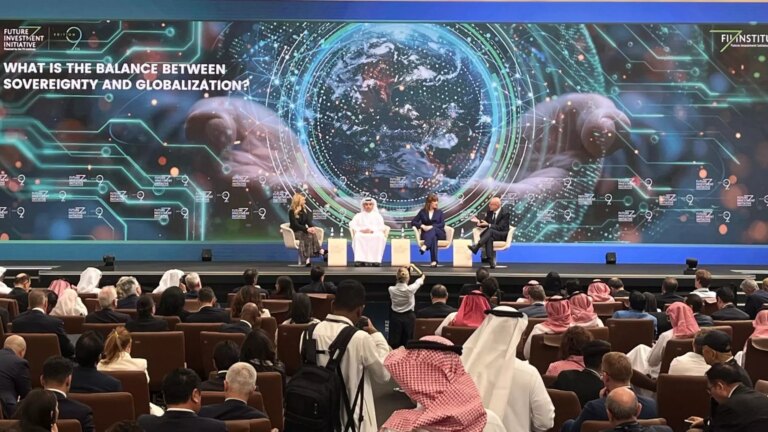RIYADH
Treasury and Finance Minister Mehmet Şimşek has stated that Türkiye is actively working to draw international technology giants to the country, emphasizing the sector’s potential to boost productivity.
Speaking at the ninth Future Investment Initiative (FII) in Saudi Arabia’s capital Riyadh, Şimşek said: “We believe this field can have tremendous impacts on productivity. Therefore, we are trying to attract international technology giants to our country.”
He highlighted globalization’s role as a key driver of global growth, noting that world trade volume has nearly sextupled since 1990, lifting a billion people out of poverty.
“Economies have prioritized staying open. We in Türkiye continue to remain open. We are aware of the importance of regional and global integration and see its benefits,” Şimşek added.
Şimşek noted that while believing in globalization’s benefits, imbalances must be managed to address societal and political reactions.
“If we can mitigate the negative effects of globalization with the right policies, it is possible to reduce societal reactions. Ultimately, today is not a period of complete decoupling from globalization, but of reducing risks,” he said.
On protectionism, Şimşek described tariffs as a form that does not benefit economies in the long term, although he understood the sensitivities in countries that apply them.
Addressing artificial intelligence, Şimşek said Türkiye is approaching the transformation cautiously, with strategic autonomy in some areas.
“We are building our own network similar to Starlink with low-orbit satellites. We are investing heavily in fiber infrastructure, and our 5G+ preparations are ongoing. We are constructing nuclear power plants to meet AI’s energy demands. Our human capital in this field is very strong; we graduate about 940,000 university students annually, and increasingly more young people are specializing in these areas,” he noted.
Şimşek mentioned a cautious stance on digital regulations, opting not to join the EU’s Digital Markets Act immediately to observe its effectiveness.
“However, our ‘trusted cloud’ regulations, which require data to be stored locally, have led some investors to say it poses obstacles,” he acknowledged.
He emphasized free trade agreements as a shield against protectionism, stating that a deal with the United Kingdom is nearly complete, while efforts continue to update the customs union with the EU to include public procurement, services and agriculture.
Images are for reference only.Images and contents gathered automatic from google or 3rd party sources.All rights on the images and contents are with their legal original owners.

